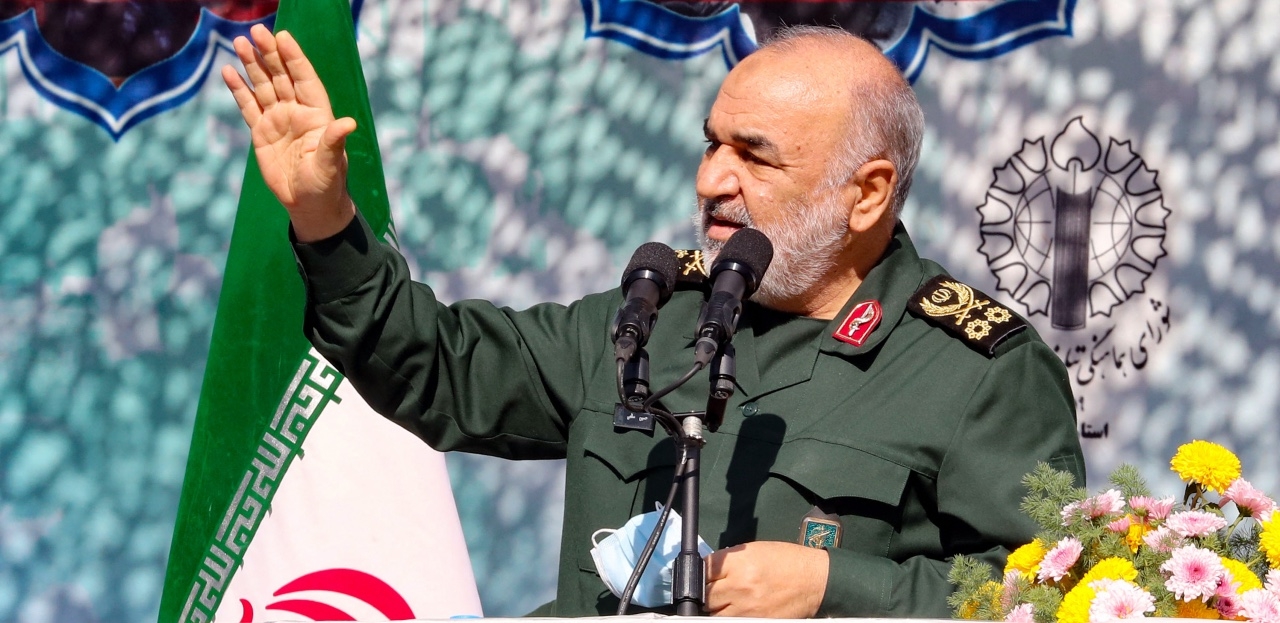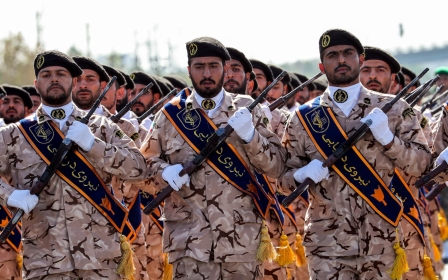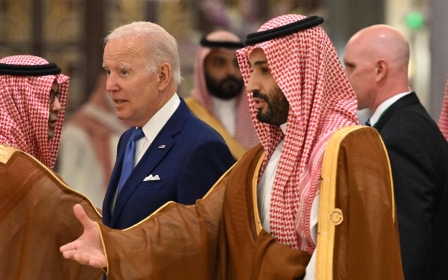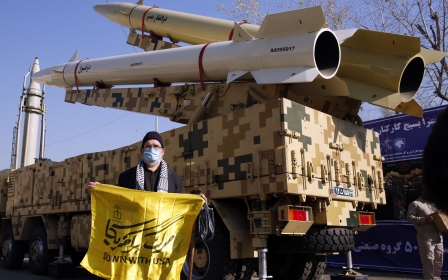Iran makes mixed overtures to Saudi Arabia amid new alignments

Iran has called for Saudi Arabia to distance itself from Israel, while making diplomatic overtures to its arch-rival.
"You are relying on an Israel which is collapsing, and this will be the end of your era," Hossein Salami, the commander of Iran's Revolutionary Guards, was quoted as saying, according to the semi-official Tasnim news agency on Thursday.
His comments come a day after a top adviser to Iran's supreme leader, Ayatollah Ali Khamenei, said the two countries should reopen their embassies as part of a bid to revive ties.
"We are neighbours of Saudi Arabia and we must coexist. The embassies of the two countries should reopen in order to solve our problems in a better way," Ali Akbar Velayati said on Wednesday.
Riyadh and Tehran have held five meetings in the past year, with talks brokered by Iraq to defuse long-running tensions. Diplomats from the two countries most recently met in April.
New MEE newsletter: Jerusalem Dispatch
Sign up to get the latest insights and analysis on Israel-Palestine, alongside Turkey Unpacked and other MEE newsletters
Yemen talks
The main topic of discussion between the two rivals has been Yemen, where Saudi Arabia is the main backer of the internationally recognised government, and where Iran has supported the Houthi rebels with arms and training.
A senior US official told Middle East Eye previously that Saudi Arabia was "very keen" to see talks with Tehran address the kingdom's security concerns in Yemen.
Iran-aligned Houthis have struck Saudi energy facilities and cities with missiles and drones, while the Saudi-led coalition has also launched thousands of air strikes in Yemen, with many hitting civilian infrastructure. A United Nations-brokered truce in Yemen expired earlier this month without renewal, risking a new flare-up in fighting.
Regional unease
Iran's mixed overtures to Saudi Arabia come at an uneasy time in the region. The Islamic Republic has been gripped by a popular uprising that started after the death in police custody of 22-year-old Mahsa Amini in September after she was detained for alleged violations of the country's dress code.
Despite a violent crackdown on protesters, the demonstrations have proven resilient, morphing into a general outpouring of frustration with Iran's government over its collapsing economy and repression.
Meanwhile, under Crown Prince Muhammad bin Salman, Saudi Arabia has begun to chart a more independent path from its historic US ally.
Ties between Saudi Arabia and the US have sunk to historic lows under the administration of President Joe Biden, with the oil-rich kingdom angered by what it sees as Washington's tepid commitment to its security concerns, as well as its criticism of human rights abuses and its efforts to revive the nuclear deal with Iran.
The Biden administration and many Democratic lawmakers have fumed over a decision by Opec+, led by Saudi Arabia and Russia, to slash its production target of oil by two million barrels a day in November, just ahead of the US midterm elections.
As prospects for a nuclear deal have faded in recent months, the US has made efforts to bolster security cooperation between Israel and its Gulf allies - but those efforts have stalled.
While Iran's comments suggest a closing of ranks between Saudi Arabia and Israel, Riyadh has publicly rebuffed the Biden administration’s efforts to bring the two countries closer together, with Foreign Minister Prince Farhan bin Faisal saying his country had "no discussion about a defensive alliance with Israel".
Israeli arms companies have also clipped their ambitions to strike weapons deals with Saudi Arabia, as a result of the new tensions with Washington, according to recent media reports.
Senator Bob Menendez, the Democrat who leads the powerful Senate Foreign Relations Committee, has threatened to block defence cooperation with Riyadh over the Opec+ decision.
The call to reestablish Tehran-Riyadh ties comes as other Gulf states appear to be hedging their bets with Iran. The United Arab Emirates reinstated its ambassador to Iran in September for the first time in six years, while Kuwait has also appointed a new ambassador to Iran.
Middle East Eye delivers independent and unrivalled coverage and analysis of the Middle East, North Africa and beyond. To learn more about republishing this content and the associated fees, please fill out this form. More about MEE can be found here.




